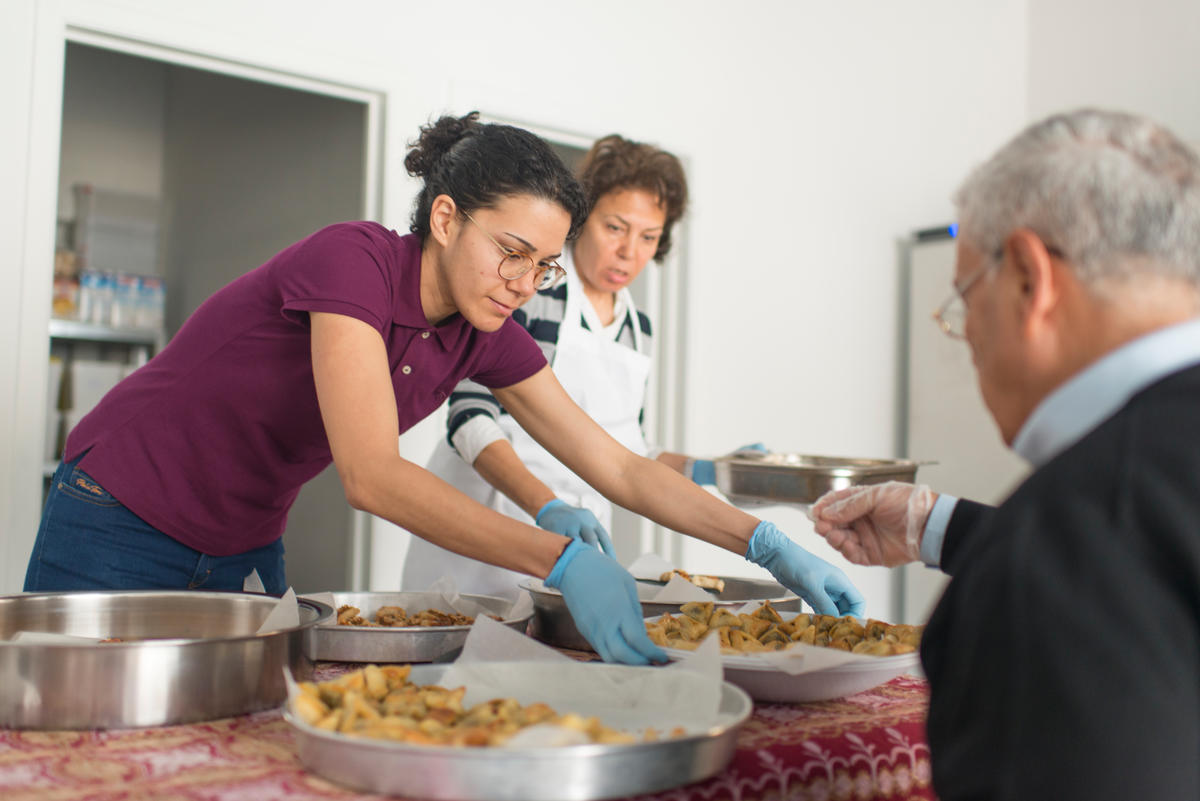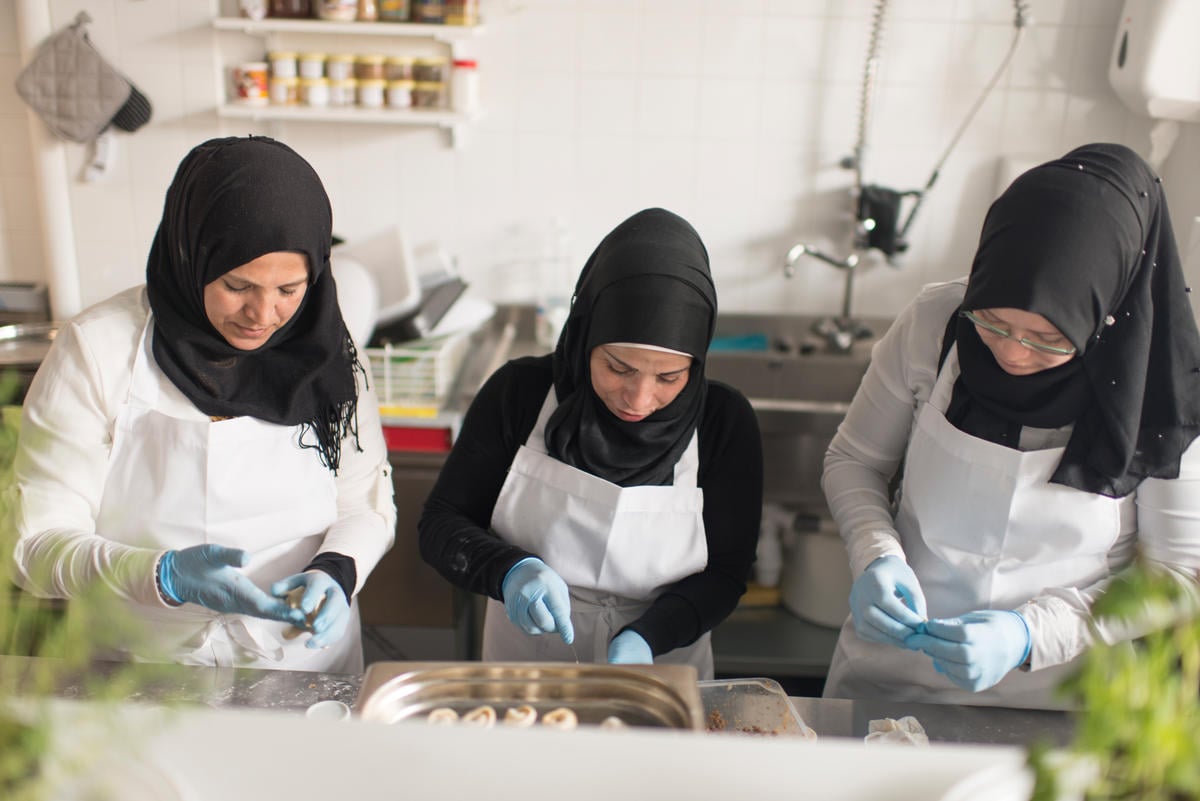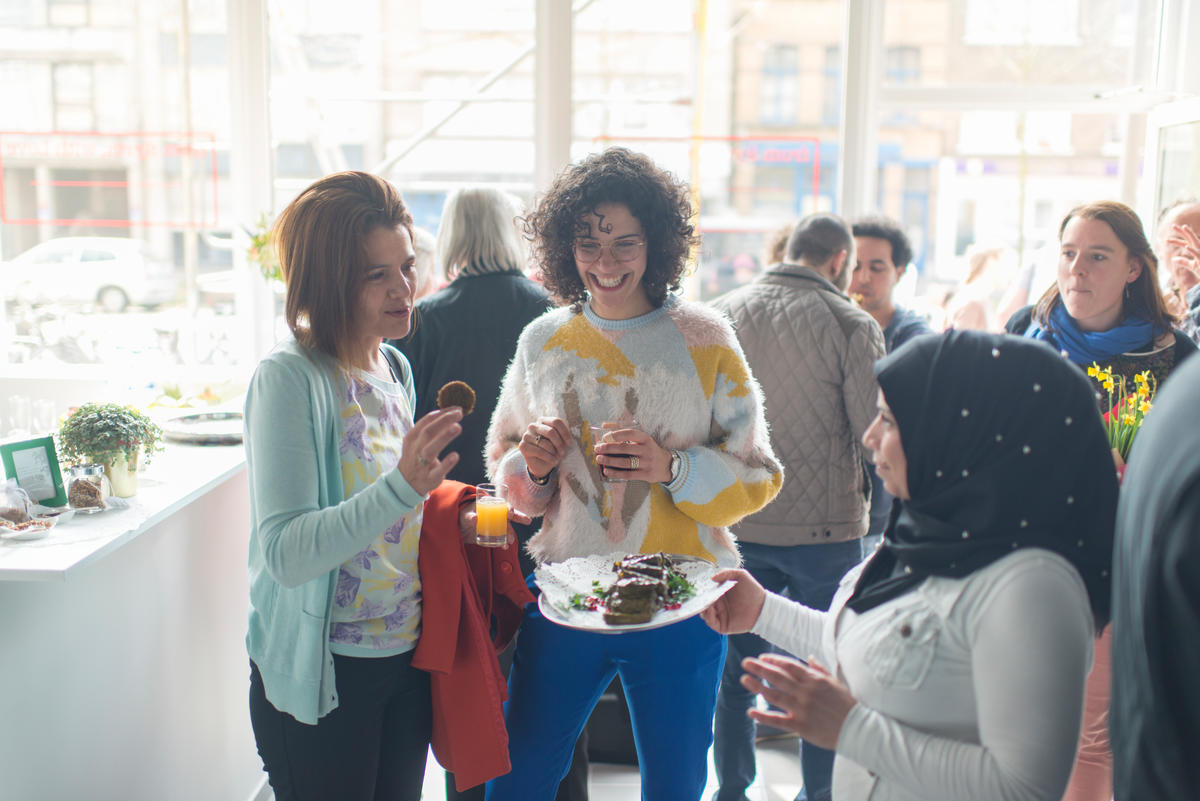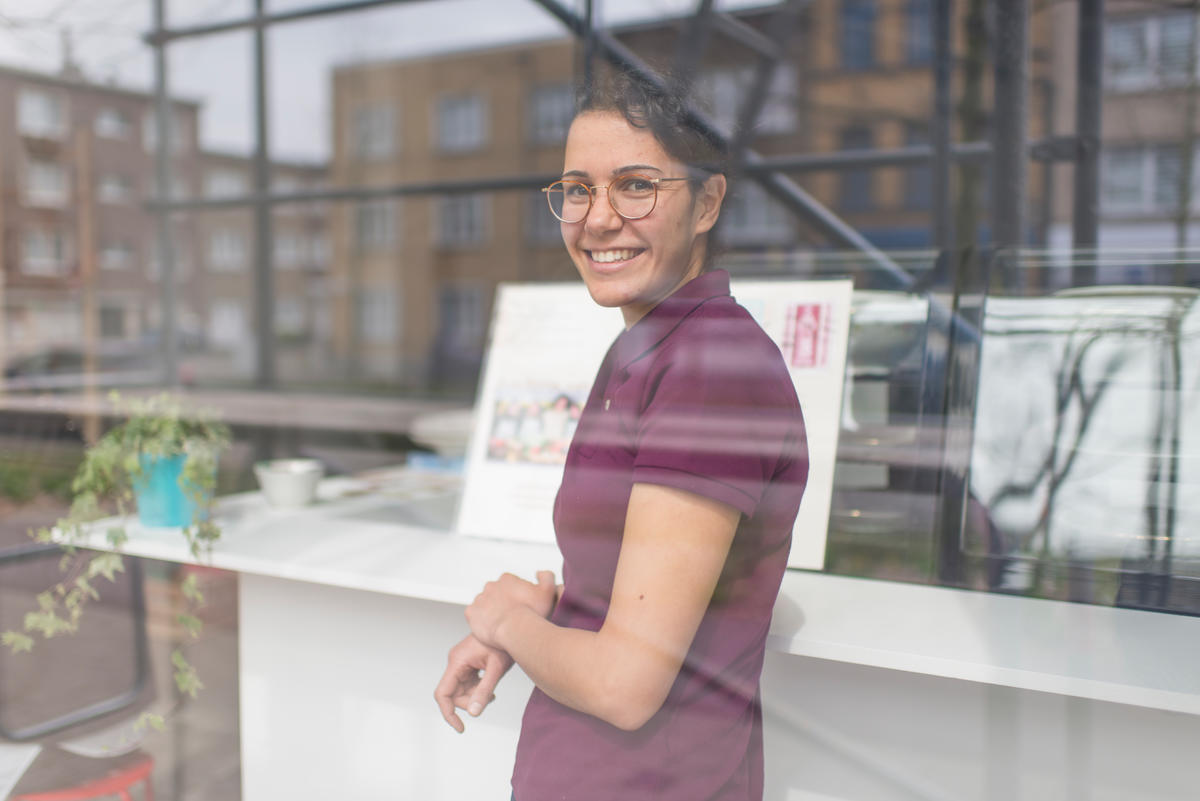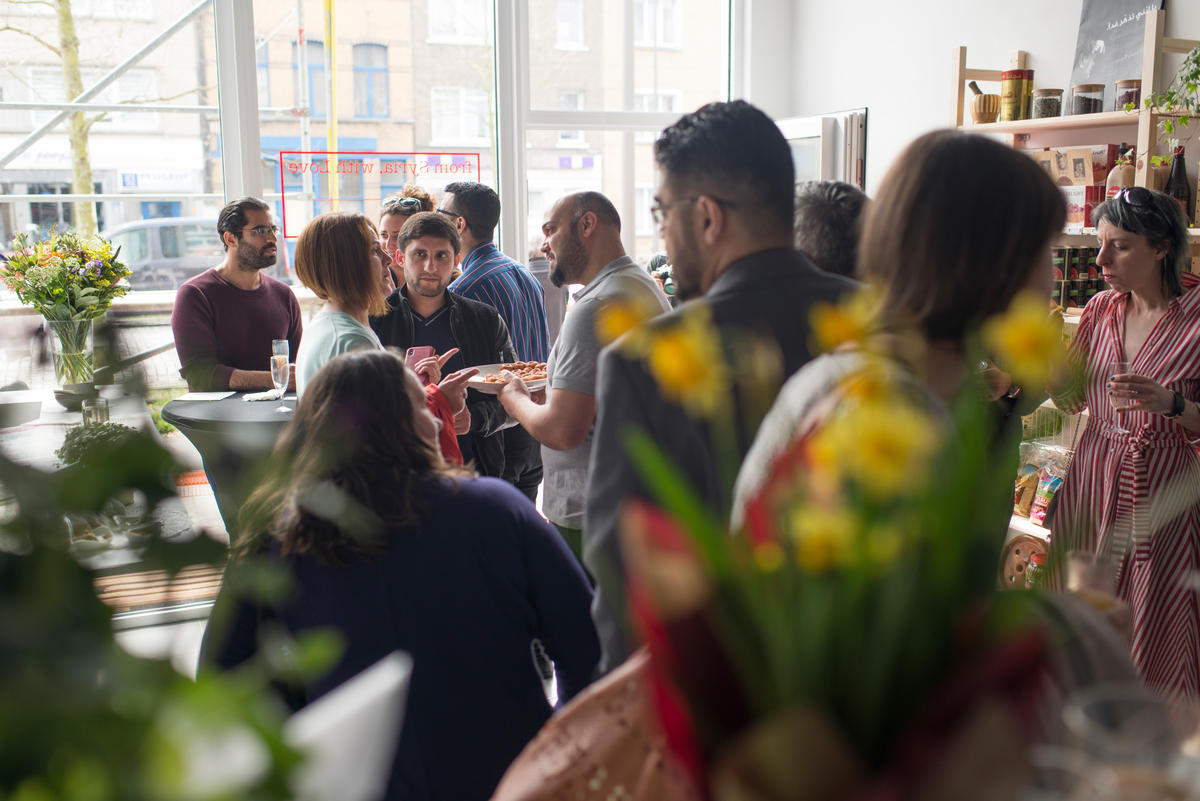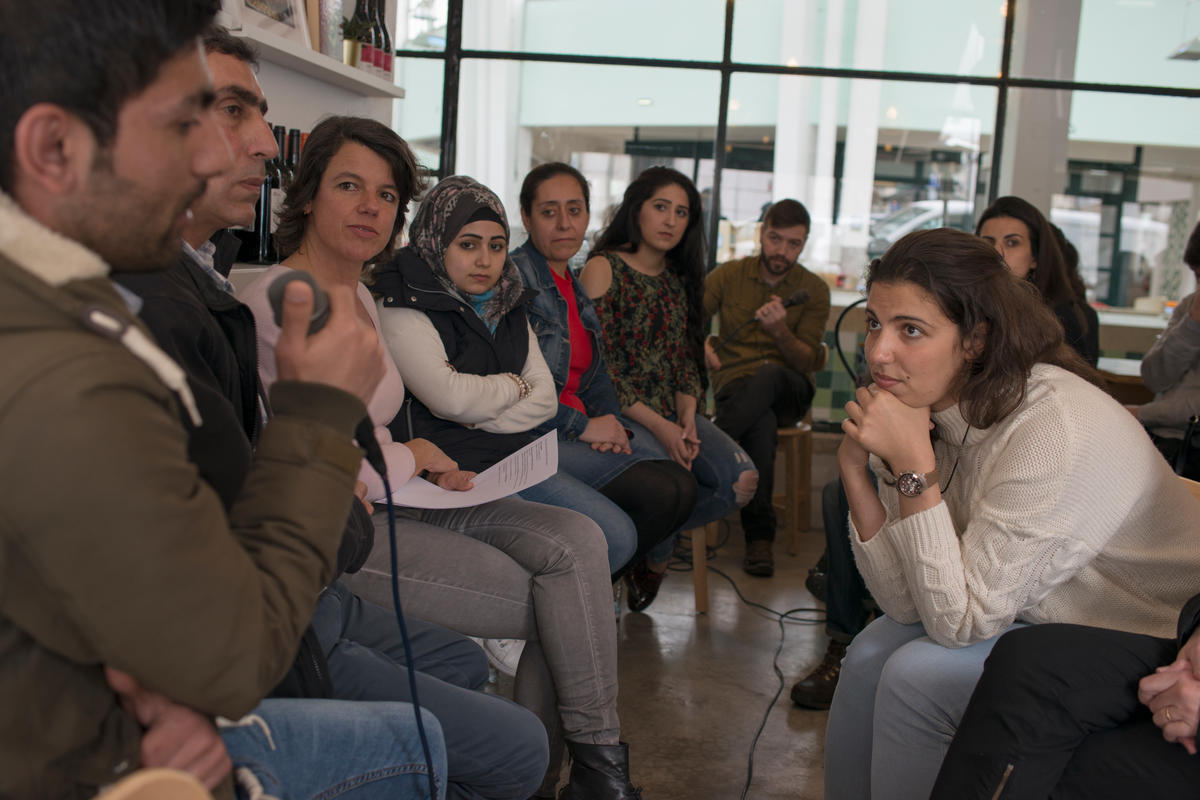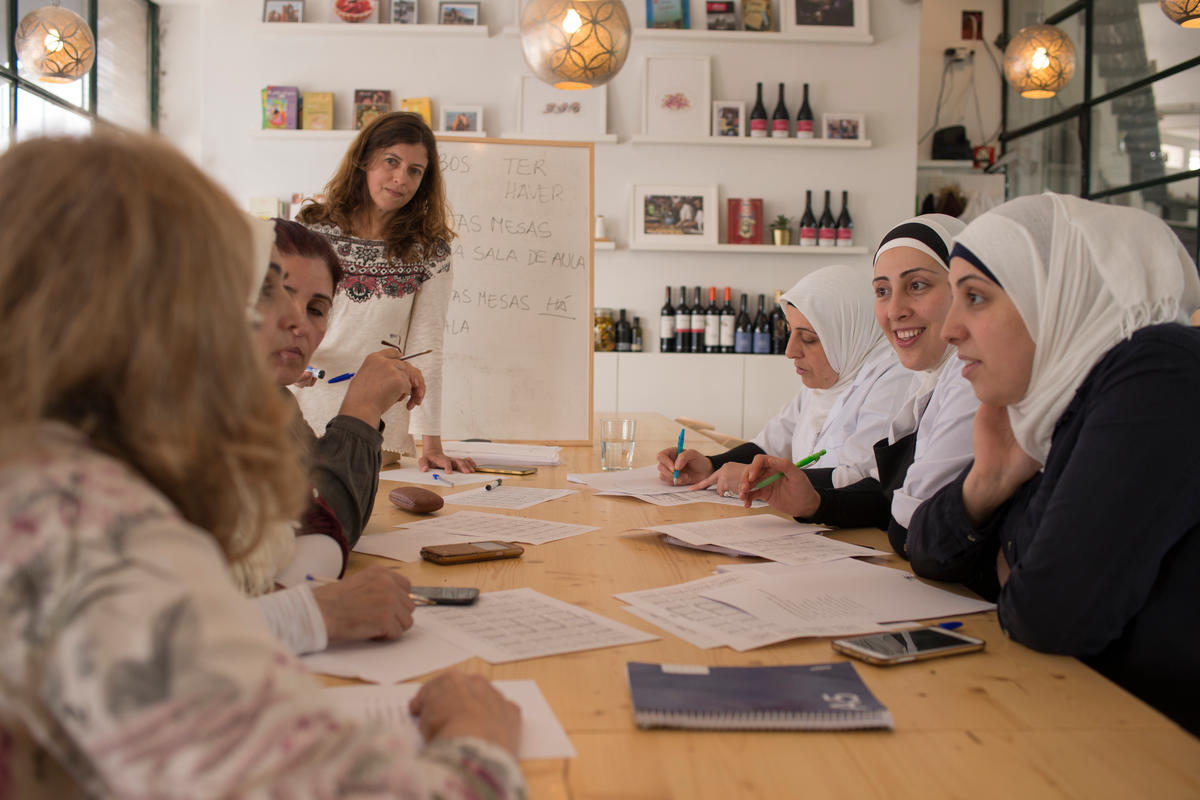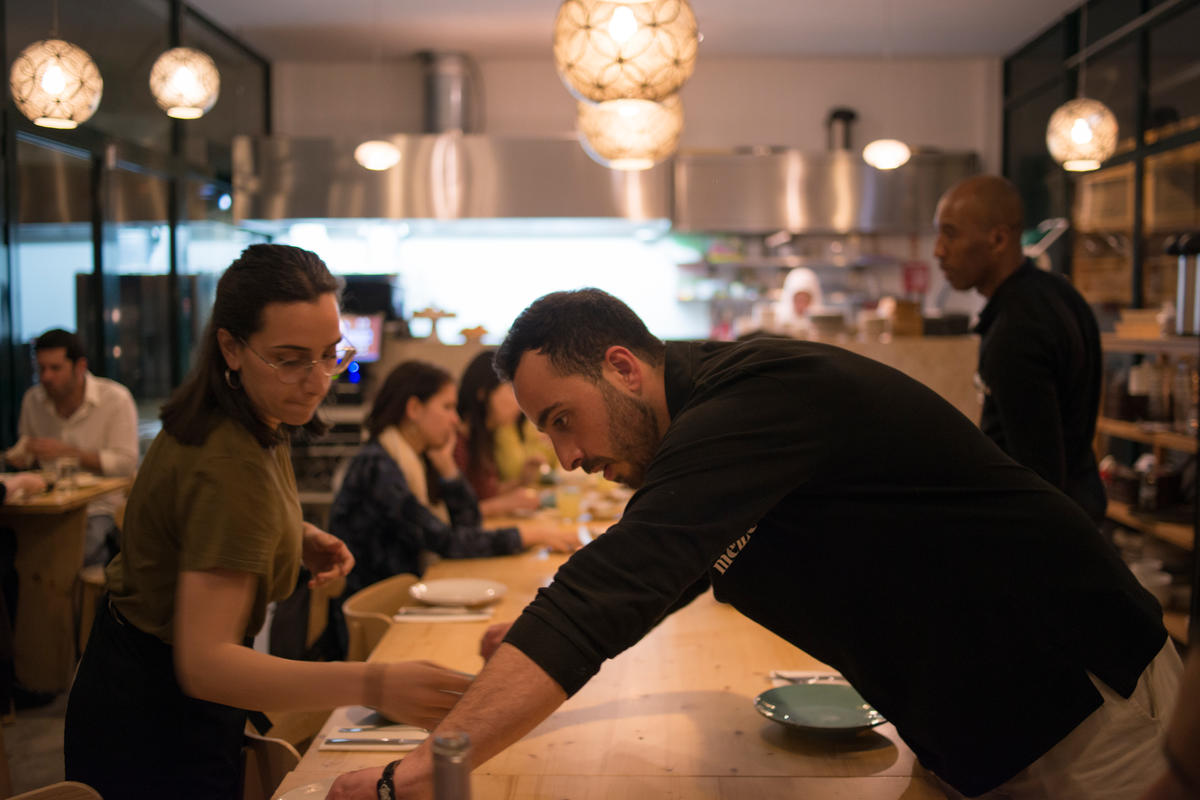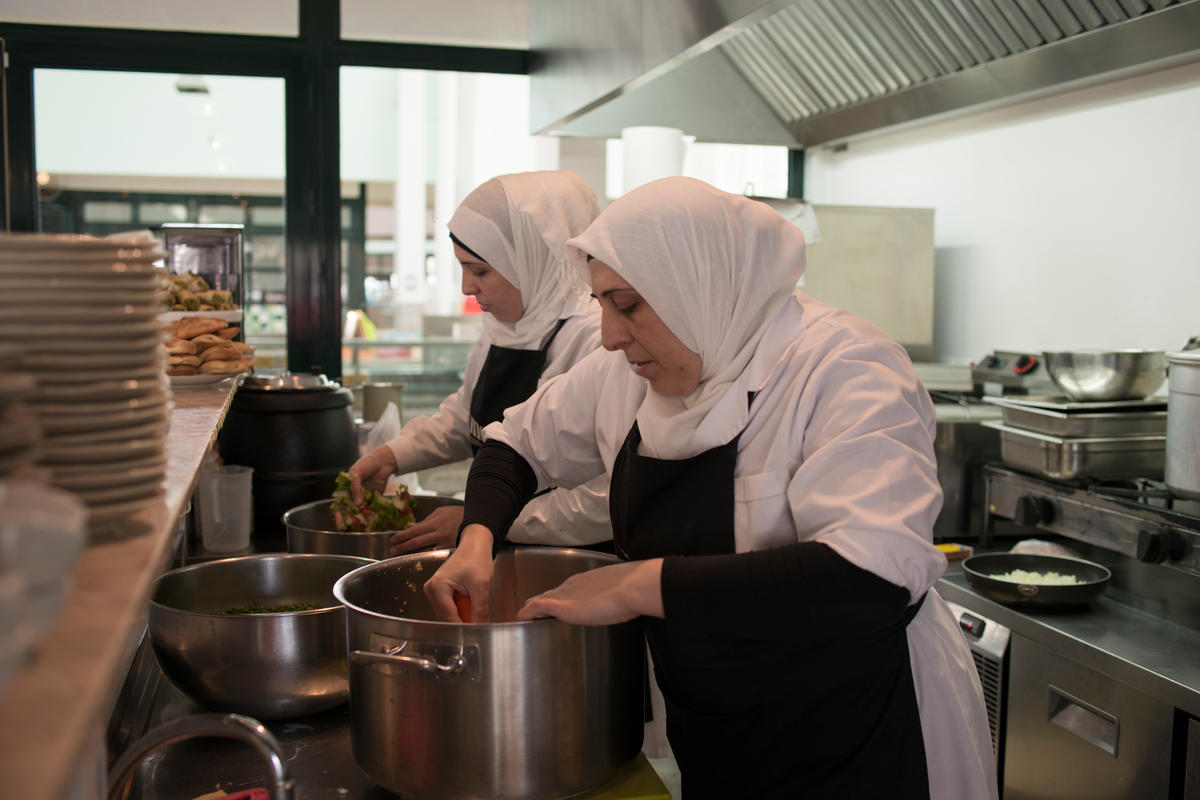Refugees turn cooking skills into tasty success stories

Refugees turn cooking skills into tasty success stories
Syrian entrepreneur Yara Al Adib gestures excitedly as she issues instructions to her team. On the other side of a gleaming metal counter, four Syrian women are shaping mounds of triangular fatayer, small pastries stuffed with spinach and pine nuts.
They have their work cut out. She and the team, all female refugees from Syria, are preparing for the grand opening of their first permanent site: a kitchen and takeaway in a suburb of Antwerp.
The event is 29-year-old Yara’s finest hour. In the past year, her business, 'From Syria With Love', has blossomed from a street-food market stall into a fully-fledged enterprise able to feed up to 800 people at a time.
Yara, a Syrian-born refugee who grew up in Kuwait, had the idea of a catering business while wondering how best to help the many new arrivals to Belgium in the summer of 2015. From her own experience, she knew work would be a vital ingredient in their economic and social integration.
"You are contributing, it gives you purpose.”
"Working is a way to feel useful again,” said Yara, whose academic background helped her land a consulting job not long after she was granted asylum in Belgium in 2014.
“It’s a feeling that you are contributing, it gives you purpose. That makes you feel good, that you’re not just a burden but you can give back somehow.”
UNHCR, the UN Refugee Agency, and the OECD, the Organisation for Economic Co-operation and Development, today (April 24) launched an action plan to expand employment opportunities for refugees. The document not only identifies the challenges, opportunities and best practices in the integration of refugees to the labour market, but also offers a list of concrete actions to support the successful employment of refugees.
Yara decided to focus her efforts on housewives, who would find it hardest to adjust socially and find work. The key, she was sure, was cooking, a skill that most Syrians take for granted but which could be put to good use in a catering business.
Yara set about building her team by approaching Syrian women she spotted on the street, in trams or in supermarkets. After a successful spell at a market, the orders began rolling in: weddings, baptisms, Christmas and New Year parties, large corporate events. The scale of the new firm’s unexpected success surprised the team and transformed their lives.
“I was sad before I had this work,” said Yara’s head chef, Sabah Fadhel, 47, who fled with her husband and two young children when war engulfed their home in Aleppo in 2015. “It’s difficult to leave your country, your memories, everything behind”.
“But now I’m doing something I love, and I know how to do. In Syria, making this food for my family was just an everyday task. Here, when I hear people say thank you, that was delicious, I feel good.”
“We aren’t a burden, that’s what I really want to emphasise.”
Yara says the project, which has attracted an army of supporters, has struck a chord with Belgians keen to welcome newcomers but unsure of how to help. At the same time, it sends a strong message that refugees can help each other and contribute to their host communities.
“I know I’m not going to convince the sceptics just by cooking,” said Yara. “I want to show them that we are contributing, we are giving back, just like them. We aren’t a burden, that’s what I really want to emphasise.”
Meanwhile in the Portuguese capital, Lisbon, another Syrian-led catering project is also creating jobs, speeding up integration and helping newcomers and residents get to know each other.
On a Sunday evening, it is standing room only at Mezze, the city’s first Syrian restaurant. This is not unusual – on most nights the attraction of home-cooked, Middle Eastern delicacies has customers queuing for a table. Tonight, however, the crowds are not here to eat, but to listen.
Portuguese co-founder Francisca Gorjão Henriques and Syrian student Alaa Al-Hariri answer questions from residents as they grill a panel of Syrian staff members about life back home. The conversation is frank. Should women work? Is inter-faith marriage acceptable? What about dating?
“People aren’t always comfortable asking questions in a busy restaurant,” said Francisca, a former journalist. “These monthly discussion events are a way for the staff and locals to talk and get to know each other.”
“Our objective was to create job opportunities.”
Mezze has always been about bringing people together around food and breaking down barriers. The restaurant, which opened last September, employs 13 Syrian refugees. Among them are seven housewives-turned-chefs who, without qualifications or experience would have otherwise struggled to find work.
The idea for the restaurant came to Francisca and fellow co-founders Rita Melo and Nuno Mesquita while chatting to Alaa, a student from Damascus, at a party. Their talk turned to the hundreds of refugees who have moved to Portugal from elsewhere in Europe.
“In Portugal it’s hard to find work, so our objective was to create job opportunities,” said Alaa, 25, who came to the country on a student visa in 2014.
Alaa and the others agreed that jobs were vital to successful integration, and that women, especially those who had not worked before, would struggle to find them. A restaurant, they decided, would give Syrian women a chance to use their existing skills and enter an environment that would allow them to participate in economic opportunities that exposed them to the social world around them.
“Women have this wonderful experience of cooking in their houses, but that isn’t recognised by employers,” said Francisca. “We’re saying no, they have skills and we should value them.”
Alaa was entrusted with searching mosques and online forums for talented cooks among Portugal’s new arrivals. The team was fixed after a highly successful run in a market prompted an overwhelming response from local media and helped raise a total of 130,000 euros in donated start-up capital.
“For them it’s not only work, it’s about participating.”
Seven months after opening, the restaurant still buzzes every night with residents keen to sample their first taste of Syrian food. However, the project has made the biggest difference for the staff, many of whom are now self-reliant and able to make a living off their own work.
“We started to feel more independent,” said Fatima, a 49-year-old former housewife from Damascus who works in the restaurant, with three of her adult children. “We don’t need help or support from the government, we’re responsible for ourselves.”
Yet a job at Mezze means more than just a monthly wage. Alongside a food safety qualification, staff receive mentoring from professional chefs and twice-weekly language lessons from volunteers. The team plans to build on their success with a catering service and a second restaurant, ventures they hope will provide still more newcomers with work and a chance to showcase a piece of home.
“At Mezze the staff are able to integrate in their own way, by bringing something from their own culture,” said Alaa. “For them it’s not only work, it’s about participating.”


